Fortune Cookie, The (1966)
“This guy is so full of angles and gimmicks and twists, he starts to describe a doughnut and it comes out a pretzel.”
|
Synopsis: |
|
Genres, Themes, Actors, and Directors:
Response to Peary’s Review: … but it’s also hard to feel much sympathy for Lemmon’s Harry Hinkle, given that: 1) his only reason for going through with the scam is to earn money for an ex-wife clearly undeserving of his ongoing devotion: … and 2) his lies cause tremendous distress to poor Rich, whose character is otherwise (mostly) purely sympathetic (admitting to having a fiancee in every town doesn’t help his case, but he’s otherwise selfless to a fault). Indeed, according to TCM’s Pop Culture 101:
Exactly; Carmichael was right. While Peary argues that “Matthau’s conniving, coldhearted performance is the reason to watch this otherwise unfunny” comedy, I disagree that he makes it worthwhile; and not that we need more to dislike in this film, but Lemmon’s mother (Lurene Tuttle) won’t stop crying hysterically, either. Sigh. This one was simply a chore to sit through. Notable Performances, Qualities, and Moments: Must See? Links: |
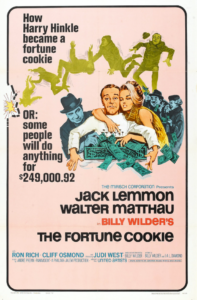
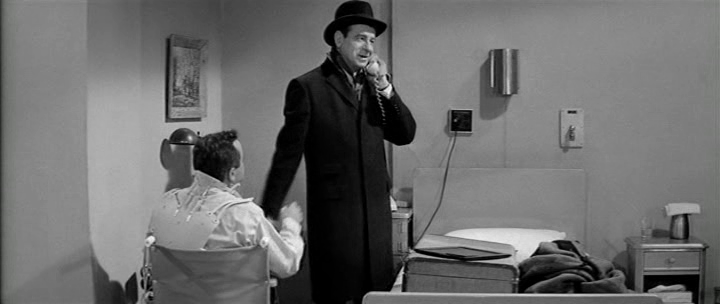
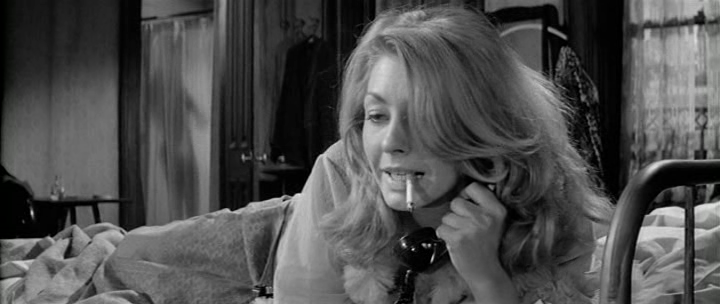
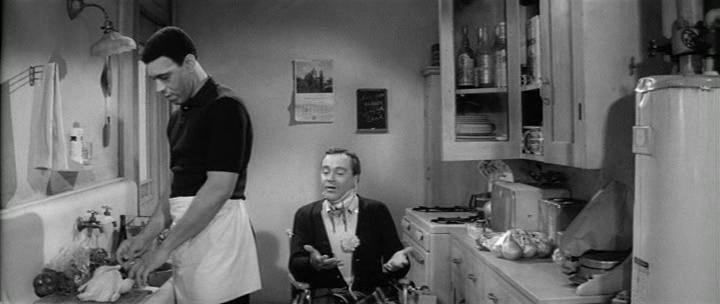
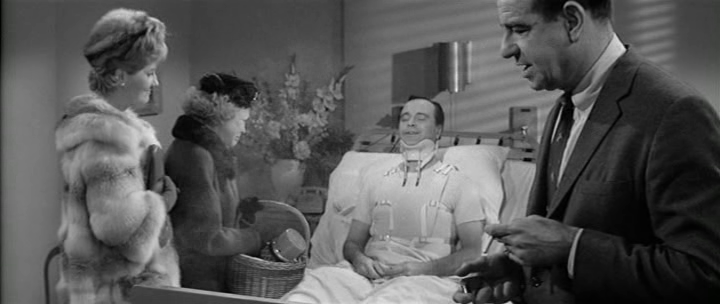
6 thoughts on “Fortune Cookie, The (1966)”
Rewatch (8/20/21).
Another tepid, late-career Wilder film. Skip it.
This is a very specific instance where I was envying you your “role” as commentor after I posted; I had a strong feeling you would say something like that, and that’s honestly what I wanted to say, too. 😉
Your role is always, by design, more thorough. I can be thorough if I want to be – but I have the luxury of not being thorough if I choose. This flick made that easy. Most of Wilder’s work in the latter part of his career is like an act of desperation. It’s sad, actually.
For what it’s worth, I AM glad I finally watched it.
I saw it showing up on AMC and TCM for many years as a teen viewer but never got around to it, maybe (?) because it only got ** out of **** and I used to try to prioritize watching *** and **** movies.
Not sure, though, because TCM has a lot of articles up about it; they love Oscar winners.
Will you be covering The Private Life of Sherlock Holmes (1970) and Avanti (1972), both excellent in my opinion?
Yes, coming soon! (Also “Fedora”.)